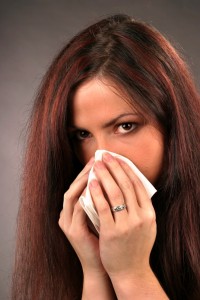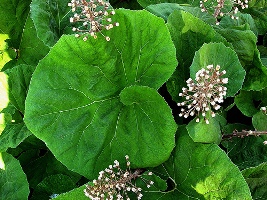 According to WebMD, approximately 35 million Americans have problems with seasonal allergies associated with pollen, grass, flowers, and other plants.
According to WebMD, approximately 35 million Americans have problems with seasonal allergies associated with pollen, grass, flowers, and other plants.
Seasonal allergies can be a life-changing experience, making us cough and sneeze to the point of even avoiding social situations. While there are certainly prescription and over-the-counter medical remedies that you can seek out, there are actually natural ways you can go about easing symptoms through your diet.
Whether it’s mold, pollen, ragweed, or what have you, it’s possible to find seasonal allergy relief (red skin, itchy eyes, and those embarrassing sneezes) from what you eat and other natural remedies.
“Using nature-based products can be a very useful way to handle mild allergies and a useful adjunct for more significant allergies, and there are many types of treatments you can safely try,” says Mary Hardy, MD, director of integrative medicine at Cedars Sinai Medical Center in Los Angeles.
Here’s where you can begin:
Clear Broth Soup – Mom’s soup remedy for your colds holds true to seasonal allergies as well. Eating soup with clear broth can help thin mucus and clear your nasal passages. Try this classic chicken noodle soup recipe.
Spicy Foods – Spice it up! The reason is quite logical, actually. The spicier the food, the more likely you will thin the mucous and clear your nasal passages. Fancy a curry, anyone? Other spices and foods that you may want to try are cayenne pepper, hot ginger, and fenugreek, onion and garlic.
Experts also suggest eating plenty of foods high in antioxidants and omega-3 fatty acids to reduce inflammation. Examples include salmon, berries (blueberries, strawberries, raspberries), red kidney beans, walnuts, apples, and oranges.
Herbal Supplements Often Favorable to Antihistamines
Some studies have suggested that Lactobacillus acidophilus strain L-92, a probiotic often added to yogurt or milk, may help ease itchy skin (atopic dermatitis).
The herb butterbur (Petasites hybridus), native to Europe, has had impressive results in clinical trials. Swiss researchers found that just one tablet of butterbur taken four times each day was as effective as a popular (unnamed) antihistamine drug in controlling hay fever symptoms. The real benefit is that there were no symptoms of drowsiness that often occur with antihistamines.
What you don’t eat can matter just as much as what you do to treat or prevent allergies. Experts say there is a connection between food intolerance and seasonal allergies. The best approach is to pay close attention to what you eat if/when you find yourself suffering from an allergic reaction.
“You have to really look at your diet and cut out any foods that seem to provoke even a mild sensitivity, such as occasional hives or even stomach upset,” says Mary Hardy, MD, director of integrative medicine at Cedars Sinai Medical Center in Los Angeles.
Also Read:

